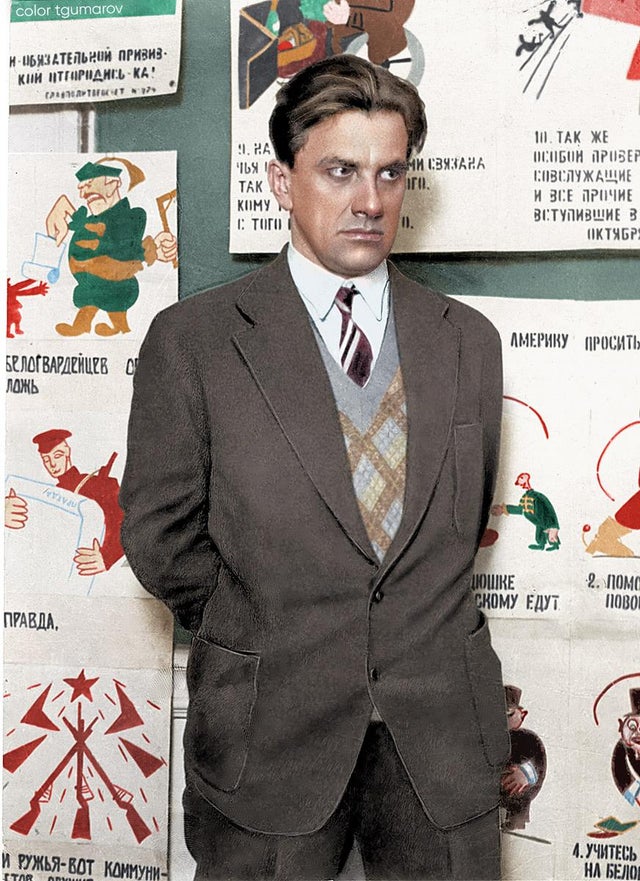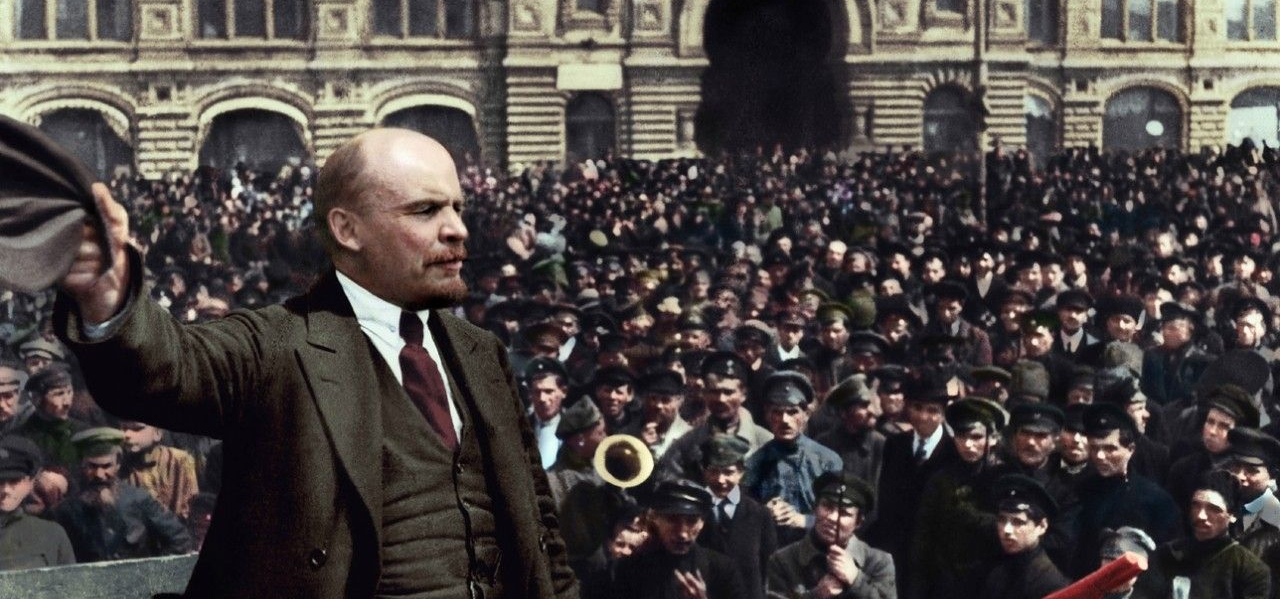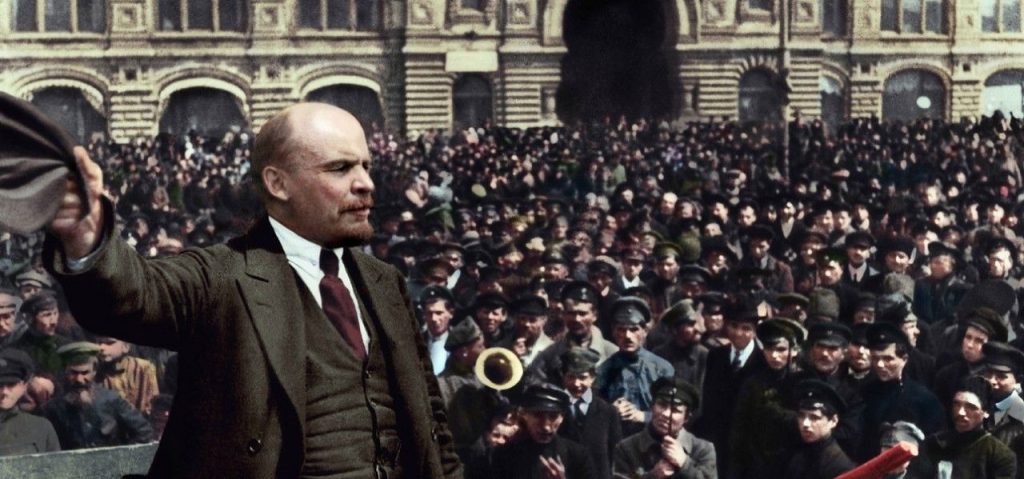Conversation with Comrade Lenin by Vladimir Mayakovsky, 1929
Vladimir Mayakovsky (1893-1930) was a Bolshevik revolutionary and came to be one of the most celebrated communist poets in the Soviet Union and internationally. He was also a talented playwright, artist and actor who used art as a medium to convey the politics and ideals of the new socialist state.
Mayakovsky was born in the small Georgian village of Bagdadi, then part of the Russian Empire and renamed after its most famous son between 1940 and 1990. He had already started working with the local Social Democrats by the time of the 1905 Revolution, joining the Bolshevik faction when he moved to Moscow a couple of years later. He did propaganda work for the party until his arrest in 1908, which resulted in an 11-month imprisonment. After imbibing culture aplenty inside prison he became one of the most visible members of the Russian artistic scene.
Mayakovsky embraced the October Revolution, putting his talents at the service of the nascent state. Although a passionate revolutionary and communist, Mayakovsky did not shy away from pointing to the faults of the young Soviet system, writing The Bedbug, a 1928 play criticising the years of the New Economic Policy while holding out hope for a communist future. He went further in The Bathhouse two years later — originally falling foul of the censors, a reworked version was critically panned.
A fiery and passionate individual to the last, Mayakovsky sadly shot himself in 1930 following a dispute with his lover, though the circumstances of his death are disputed. Mayakovsky’s funeral on 17 April 1930, was attended by around 150,000 people, the third largest event of public mourning in Soviet history, surpassed only by those of Lenin and Stalin.
*

Awhirl with events,
packed with jobs one too many,
the day slowly sinks
as the night shadows fall.
There are two in the room:
I
and Lenin-
a photograph
on the whiteness of wall.
The stubble slides upward
above his lip
as his mouth
jerks open in speech.
The tense
creases of brow
hold thought
in their grip,
immense brow
matched by thought immense.
A forest of flags,
raised-up hands thick as grass…
Thousands are marching
beneath him…
Transported,
alight with joy,
I rise from my place,
eager to see him,
hail him,
report to him!
“Comrade Lenin,
I report to you –
(not a dictate of office,
the heart’s prompting alone)
This hellish work
that we’re out to do
will be done
and is already being done.
We feed and we clothe
and give light to the needy,
the quotas
for coal
and for iron
fulfill,
but there is
any amount
of bleeding
muck
and rubbish
around us still.
Without you,
there’s many
have got out of hand,
all the sparring
and squabbling
does one in.
There’s scum
in plenty
hounding our land,
outside the borders
and also
within.
Try to
count ’em
and
tab ’em –
it’s no go,
there’s all kinds,
and they’re
thick as nettles:
kulaks,
red tapists,
and,
down the row,
drunkards,
sectarians,
lickspittles.
They strut around
proudly
as peacocks,
badges and fountain pens
studding their chests.
We’ll lick the lot of ’em-
but
to lick ’em
is no easy job
at the very best.
On snow-covered lands
and on stubbly fields,
in smoky plants
and on factory sites,
with you in our hearts,
Comrade Lenin,
we build,
we think,
we breathe,
we live,
and we fight!”
Awhirl with events,
packed with jobs one too many,
the day slowly sinks
as the night shadows fall.
There are two in the room:
I
and Lenin –
a photograph
on the whiteness of wall.
Vladimir Mayakovsky




